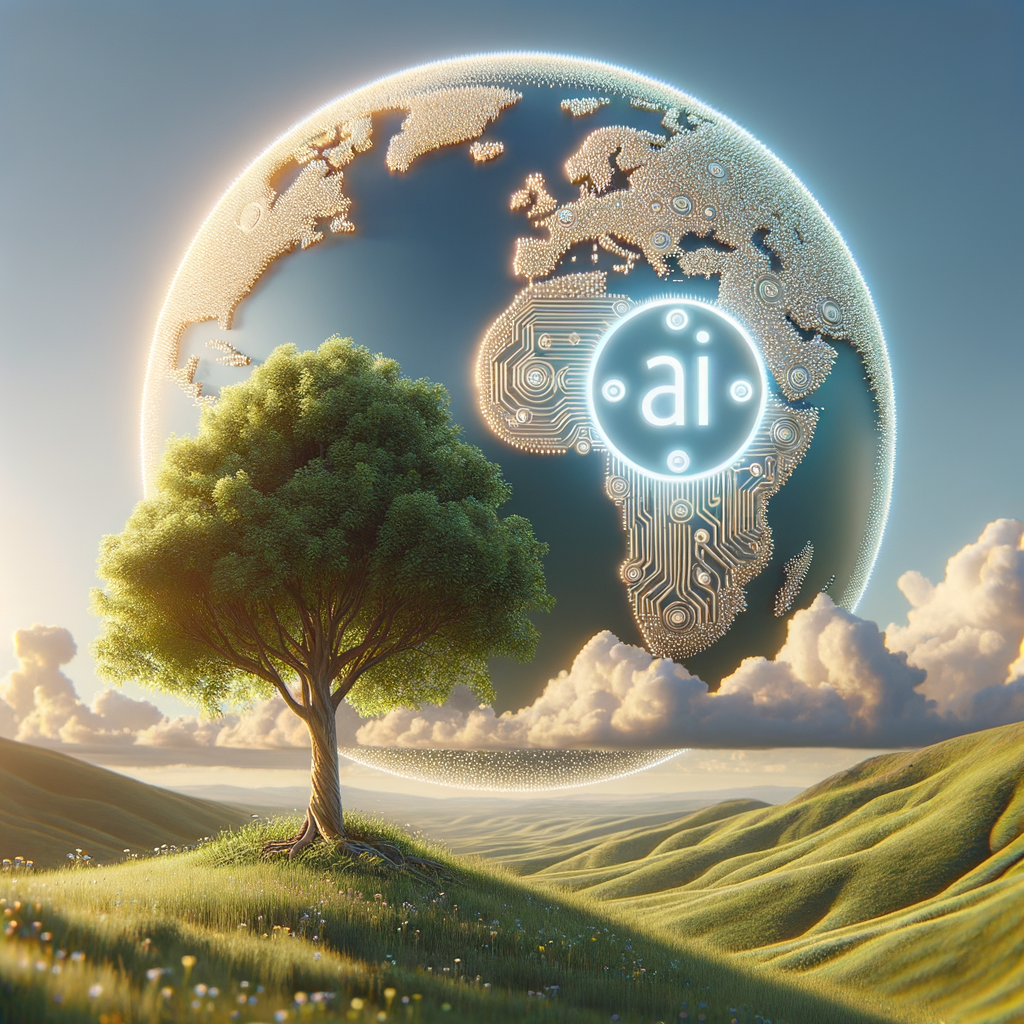
AI and Environmental Sustainability: A Symbiotic Relationship
Explore how the fusion of artificial intelligence and environmental initiatives is driving sustainable practices across industries. Discover innovative applications and the future potential of AI technologies in combating environmental challenges and fostering eco-friendly solutions.
Introduction
The growing awareness around climate change and environmental degradation has propelled the search for effective and sustainable solutions. Artificial Intelligence (AI), with its vast capabilities, is emerging as a key player in the quest for environmental sustainability. This blog post explores the multifaceted ways AI is influencing and advancing sustainable practices while highlighting the synergy between technology and environmental conservation.
AI in Environmental Monitoring
One of the critical applications of AI in sustainability is environmental monitoring. Intelligent algorithms analyze data from sensors, satellites, and cameras to detect changes in ecosystems, track wildlife, and monitor deforestation. Advanced AI models provide real-time insights, enabling authorities to respond swiftly to natural disasters and manage resources efficiently.
Case Study: AI for Ocean Health
AI technologies play a significant role in maintaining ocean health by mapping ocean floors, tracking marine life, and predicting oceanic changes. For instance, machine learning algorithms combined with satellite imagery can predict and prevent illegal fishing activities, helping to preserve marine biodiversity.
Renewable Energy Optimization
The integration of AI in the renewable energy sector has revolutionized the efficiency and deployment of wind, solar, and hydroelectric power. Predictive analytics enhance energy consumption predictions, optimize supply chains, and manage grid stability, paving the way for a more reliable and sustainable energy future.
Harnessing Wind Power
AI-driven analytics improve the planning and operation of wind farms by predicting wind patterns and turbine performance. These insights lead to more efficient energy production and reduced operational costs.
Urban Sustainability with Smart Cities
AI is a cornerstone of smart city development, promoting urban sustainability through data-driven solutions. Intelligent traffic management systems, improved waste management, and energy-efficient infrastructure are just a few examples of how AI is transforming urban environments.
Smart Buildings
AI helps design and manage smart buildings that optimize energy usage, reduce waste, and enhance occupant comfort. Advanced algorithms analyze energy consumption patterns, automate lighting and HVAC systems, and adjust settings based on real-time occupancy data.
Agriculture: AI’s Role in Sustainable Practices
AI innovations support sustainable agriculture by offering precise data analysis, optimal resource allocation, and enhanced crop management. AI tools help farmers make data-informed decisions, leading to reduced environmental impact and increased food security.
Drone Technology in Precision Farming
AI-powered drones monitor crop health, assess soil conditions, and optimize irrigation practices, directing resources where they are needed most. These aerial assistants thus enhance yield and minimize environmental footprints.
Reducing Carbon Footprints through AI
AI applications can significantly reduce carbon emissions by optimizing supply chains, enhancing manufacturing processes, and improving logistics management. Predictive models identify emission-intensive activities and suggest sustainable alternatives.
AI in Transportation
AI helps design more efficient transportation networks by optimizing routes, reducing idle time, and predicting maintenance needs, ultimately reducing the carbon footprint of logistics and personal transport systems.
The Future of AI in Environmental Sustainability
The potential for AI to drive environmental sustainability is immense and continually evolving. Combining AI with emerging technologies such as IoT and blockchain could usher in a new era of eco-friendly innovations and amplified environmental stewardship.
Challenges and Considerations
Despite the benefits, deploying AI for sustainability presents challenges, including data privacy concerns, ethical implications, and the need for significant computational resources. Solutions must prioritize transparency and align with ethical AI standards.
Conclusion
AI's capabilities offer a promising path toward achieving global sustainability goals. By fostering innovation and collaboration across disciplines and industries, AI holds the potential to transform environmental challenges into opportunities for a sustainable future. The ongoing fusion of AI and environmental sustainability promises a symbiotic relationship that could hold the key to preserving our planet.